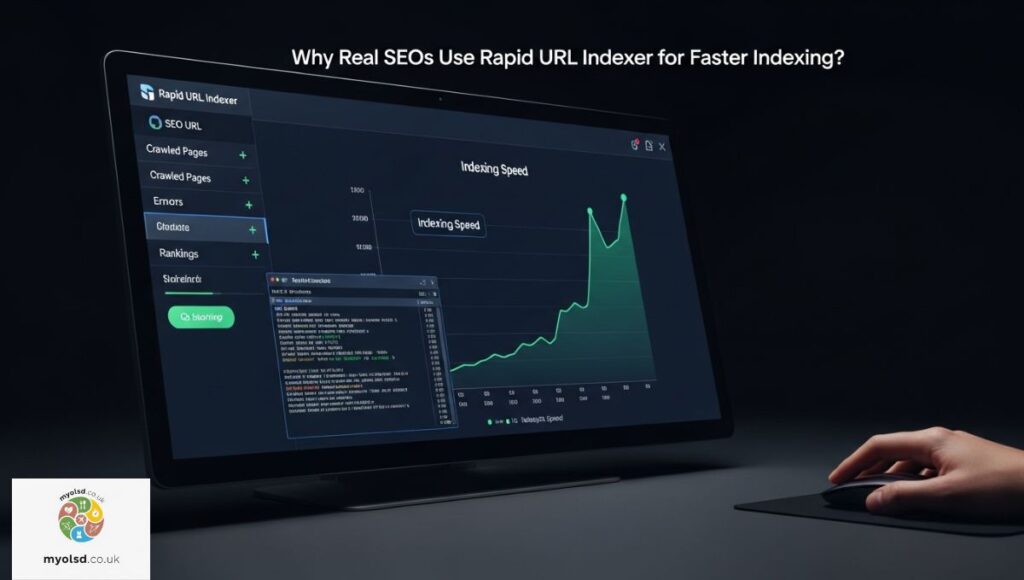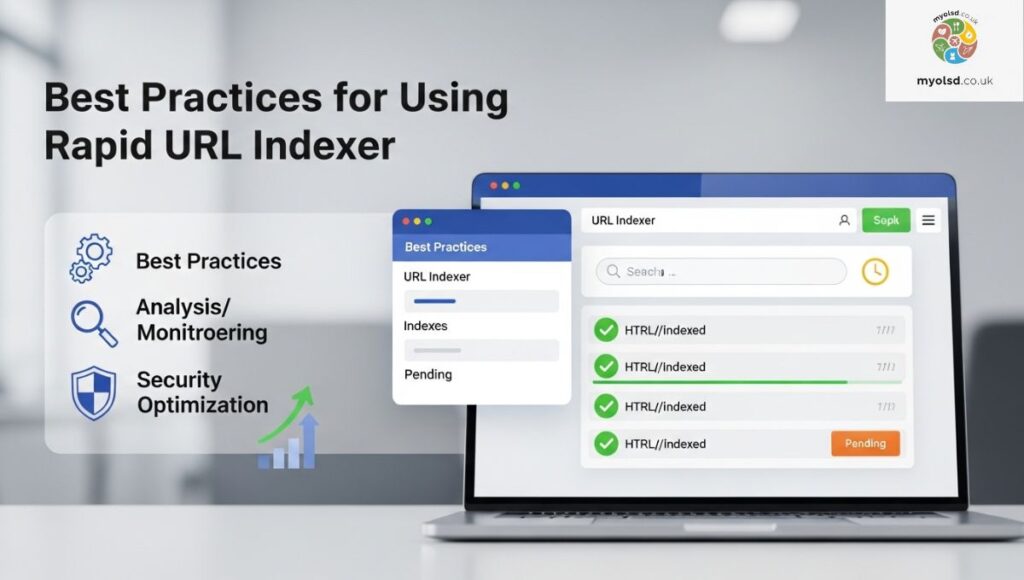Ever spent hours publishing new content, only to wonder if Google has even noticed it yet? You’re not alone. Many website owners and marketers get frustrated watching their pages sit in limbo, unsure when or if they’ll appear in search results. That’s exactly why people start asking questions like why real SEOs use Rapid URL Indexer.
In this post, we’ll break down how Rapid URL Indexer works, why it’s a favorite tool among professional SEOs, and how it can speed up your pages getting noticed by search engines. You’ll get clear, practical insights that make indexing faster and more reliable, helping your website rank higher and reach your audience sooner.
Why Real SEOs Use Rapid URL Indexer for Faster Indexing?

SEO professionals know that time equals ranking opportunity. When a new page, blog post, or backlink takes weeks to get indexed, competitors can move ahead in search results. For international markets, slow indexing can be even worse because country-specific pages and local backlinks often take longer to appear in search engines. That’s why real SEOs use Rapid URL Indexer it’s like moving to the front of the line for crawling and indexing.
Instead of relying solely on Google Search Console or hoping search engine crawlers discover your URLs organically, Rapid URL Indexer actively submits them to Google. This speeds up the process, improves indexing consistency, and helps SEOs maintain a competitive edge in SERPs. By fast-tracking URLs, they can boost website visibility and ranking performance across multiple markets.
What is URL Indexing?
URL indexing is the process search engines use to store and organize web pages in their databases. When you publish a new page or build a backlink, search engine crawlers first crawl the URL, then decide if it should be added to their index. Without indexing, your content won’t appear in search results, no matter how good it is.
However, indexing doesn’t happen instantly. Even with optimized sitemaps, internal linking, and backlinks, pages can sit unindexed for days or weeks. For SEOs managing dozens of client websites, campaigns, or country-specific pages, this lag can slow down the entire SEO workflow.
Why is Fast URL Indexing Important for SEO?
Fast indexing gives you a head start in search results. If your competitor’s page is already indexed and yours isn’t, they’re visible to potential customers while you’re invisible. That can cost traffic, leads, and sales. For backlinks, delays mean search engines aren’t factoring your link-building efforts into your rankings as quickly as they could.
Speed also matters for time-sensitive content such as press releases, new product pages, or seasonal offers. Rapid indexing ensures that your hard work pays off sooner, helping you rank higher in international SERPs, improve local search performance, and maximize SEO impact.
What is Rapid URL Indexer?
Rapid URL Indexer is an advanced SEO tool that accelerates the indexing of URLs, backlinks, and website pages. Instead of waiting for organic discovery, this tool actively submits your URLs to Google’s indexing queue. It’s designed for SEO professionals who need reliable, affordable indexing at scale.
The tool offers features like a high success rate, a pay-as-you-go model, API integration, and compatibility with WordPress, Zapier, and even a Chrome extension. There’s no need for Google Search Console access, and it includes automatic refunds for unindexed URLs. For anyone managing international SEO, Rapid URL Indexer is a hidden gem that can transform indexing performance.
How Real SEOs Use Rapid URL Indexer to Boost Rankings

Professional SEOs don’t just use Rapid URL Indexer randomly; they integrate it strategically into their campaigns. For example, after launching country-specific pages with hreflang tags, they immediately submit those URLs for indexing to ensure visibility in local markets. When building backlinks or citations for international clients, they push those URLs through Rapid URL Indexer to speed up the link equity transfer.
Agencies also use the tool to handle bulk submissions after site migrations, ensuring that all new or updated pages are quickly recognized by search engines. By doing this, they maintain a competitive SEO edge, streamline workflow, and avoid ranking delays.
Advantages of Using Rapid URL Indexer
Rapid URL Indexer offers clear advantages over relying solely on organic crawling or Google Search Console:
- Faster Indexing: Get pages and backlinks indexed in days instead of weeks.
- International Reach: Improve global visibility by ensuring country-specific URLs are indexed quickly.
- Affordable & Flexible: Pay-as-you-go pricing with a $1 trial for 20 URLs makes it accessible for small projects and enterprise sites alike.
- No Search Console Required: Submit URLs without needing account access, perfect for agencies managing multiple clients.
- Automation & Integration: Connect via API, Zapier, or WordPress to streamline submissions.
- Transparency: Track indexing results and performance with detailed reports.
These benefits help SEOs improve search rankings, organic traffic, and website performance consistently.
When Should You Use Rapid URL Indexer?
Rapid URL Indexer is especially effective in scenarios where time matters. For new websites or freshly published content, early indexing can speed up ranking improvements. If you’ve just built a large batch of backlinks or citations, using the tool ensures search engines count them faster.
It’s also valuable during site migrations or major content updates, when hundreds or thousands of URLs need to be re-indexed quickly. Local SEO agencies can use it to keep client websites visible in search engines, while international SEO specialists can maintain a strong presence across multiple markets.
Read more Article:Why Are Sofas So Expensive?
Best Practices for Using Rapid URL Indexer

To get the most from Rapid URL Indexer, treat it as part of your overall SEO strategy rather than a quick fix. Make sure your pages are properly optimized before submitting them clean URLs, meta tags, structured data, and country targeting (if relevant) all help. Prioritize high-value URLs like important backlinks, product pages, or press releases.
Monitor performance regularly. Track which URLs are getting indexed, how fast, and the impact on your rankings. Use integrations like Zapier or the API to automate bulk submissions and maintain consistency across campaigns. This approach helps maximize your return on investment and sustain long-term SEO gains.
Conclusion
In the fast-paced world of search engine optimization, waiting for indexing can feel like watching paint dry. That’s why real SEOs use Rapid URL Indexer: it takes the guesswork out of indexing and puts control back in their hands. By fast-tracking URLs and backlinks, improving indexing performance, and offering flexible pricing, this tool helps professionals stay ahead of the competition.
Whether you’re optimizing for local SEO or expanding internationally, Rapid URL Indexer can transform your workflow, improve search visibility, and deliver results faster. If you’re serious about boosting rankings and traffic, this hidden gem might just be the competitive edge you need.
FAQs
Why do real SEOs use Rapid URL Indexer?
Because it speeds up the indexing of pages and backlinks, helping SEOs see ranking improvements and traffic gains faster than waiting for organic crawling.
Is Rapid URL Indexer good for SEO agencies?
Yes, its bulk submission, automation, and reporting tools make it ideal for agencies managing multiple client websites.
Is Rapid URL Indexer good for local SEO citations?
Absolutely. It helps local citations and directory links get indexed quickly so they start impacting local rankings sooner.
Why do SEO agencies trust Rapid URL Indexer more than IndexInject for client projects?
Many agencies prefer Rapid URL Indexer because of its high success rate, transparent reporting, and automatic refunds for unindexed URLs.
Can backlinks be indexed using Rapid URL Indexer?
Yes, it’s specifically designed to get backlinks discovered and indexed faster, boosting link equity and rankings.
How accurate are Rapid URL Indexer’s reporting features?
Its reports are detailed and updated, making it easy to track which URLs have been indexed and measure performance.
Why do content marketers prefer Rapid URL Indexer over Giga Indexer for their campaigns?
They appreciate its affordable pricing, seamless integration, and consistent indexing results for new content.
How to tell if a site is indexed?
You can check by searching site:yourdomain.com on Google or using an index-checking tool to confirm if pages are in the index.
How can I index my backlinks faster?
Submit them through Rapid URL Indexer or similar tools to notify search engines directly and accelerate the crawling and indexing process.


1 thought on “Why Real SEOs Use Rapid URL Indexer for Faster Google Indexing”